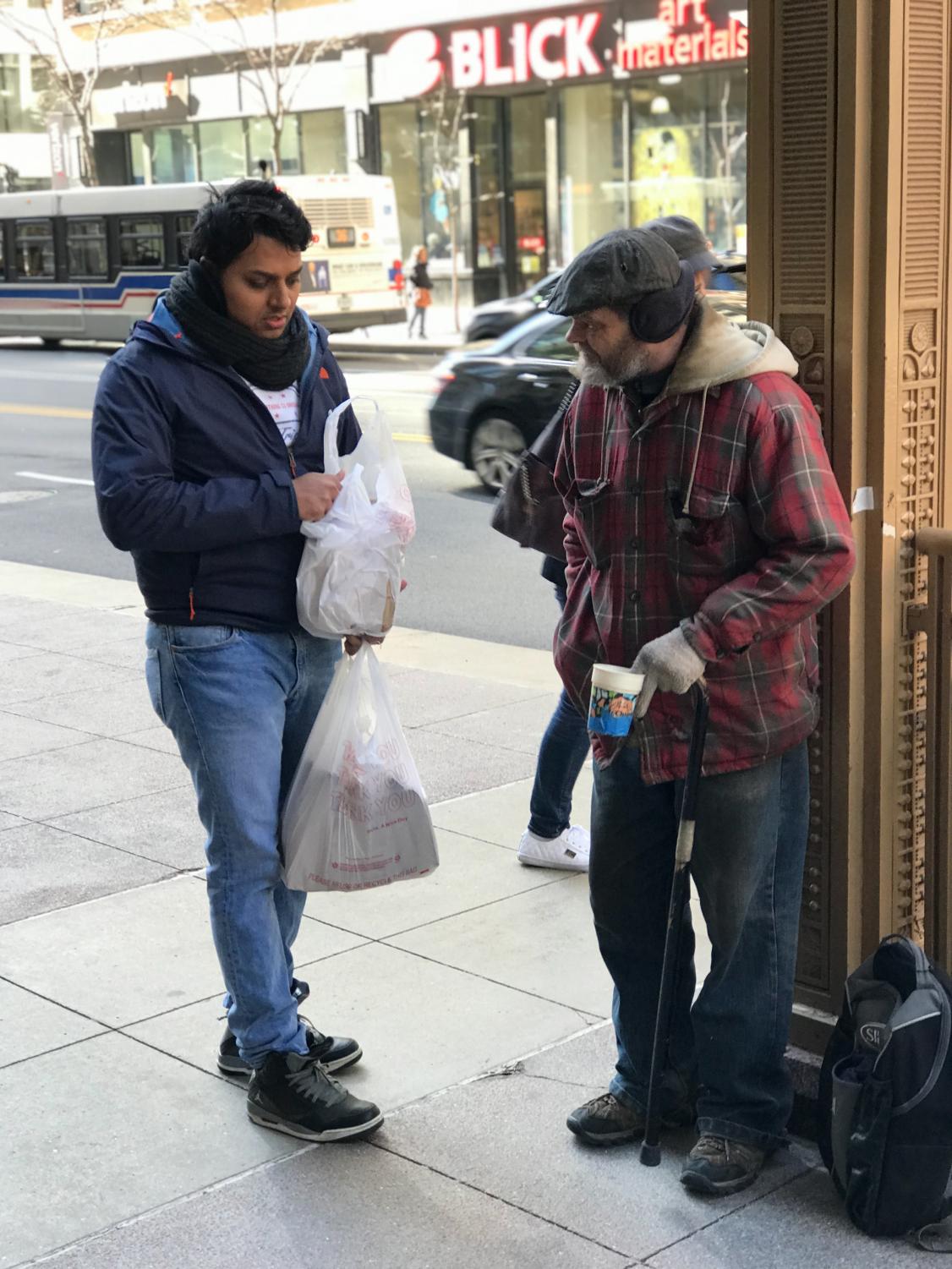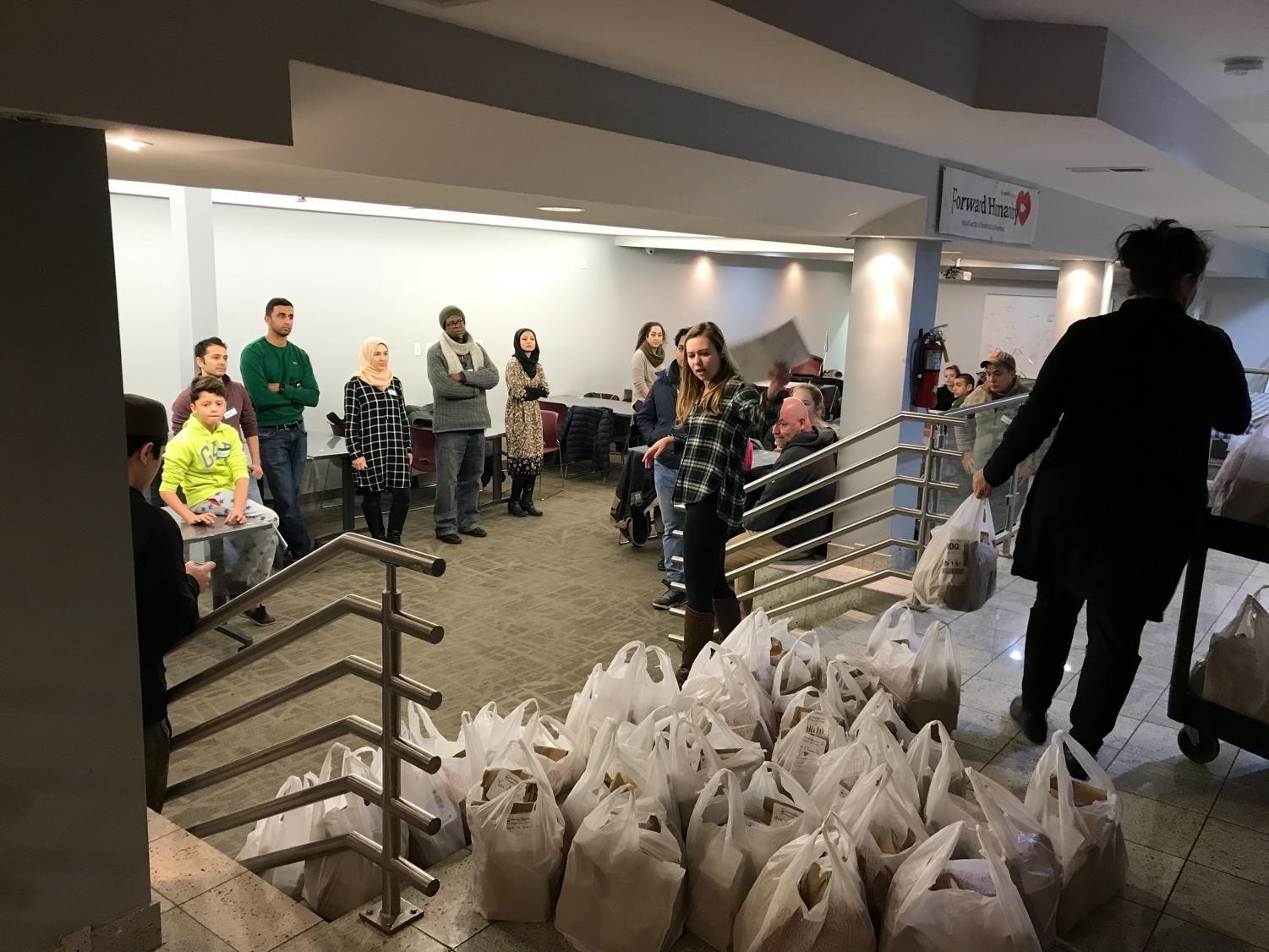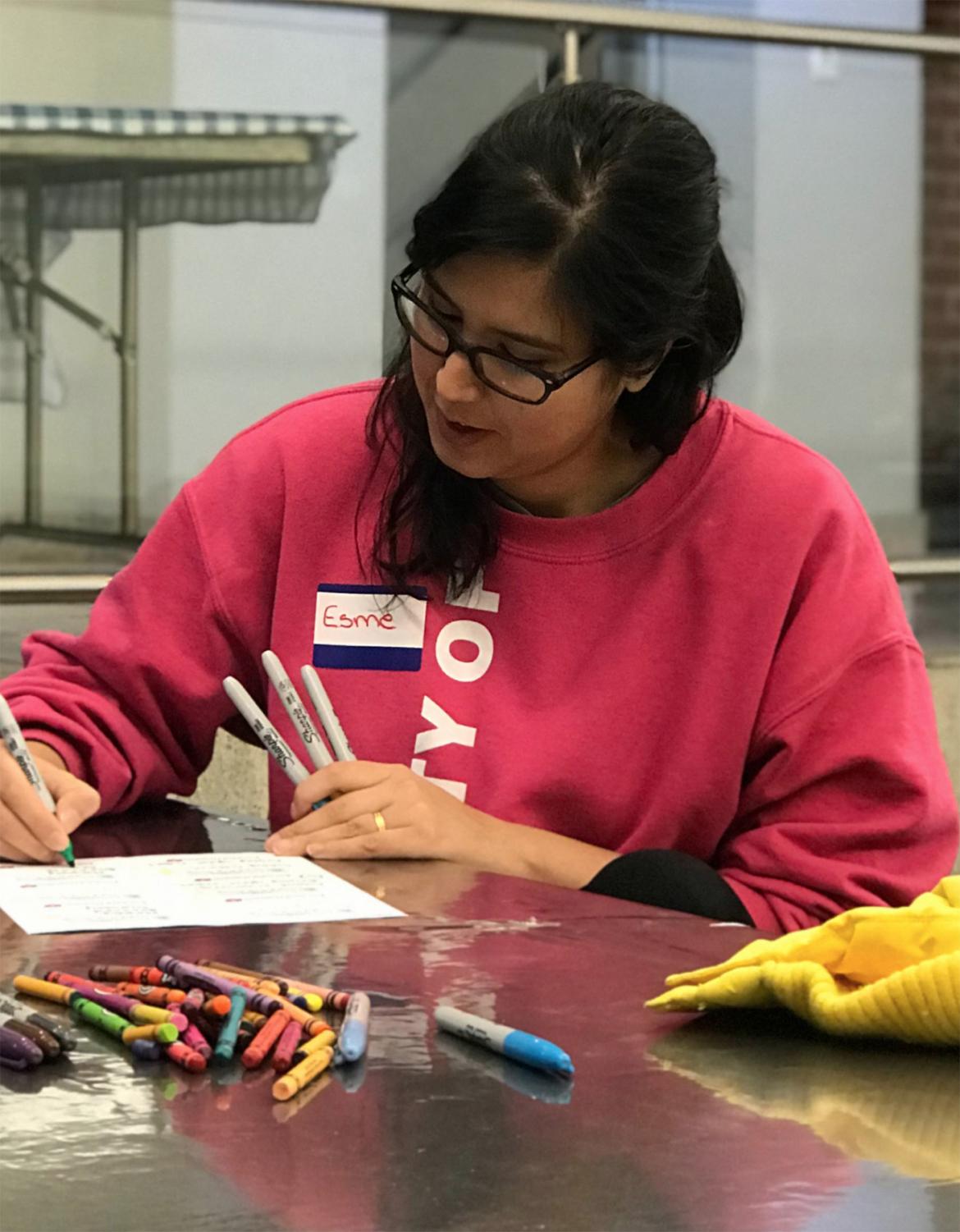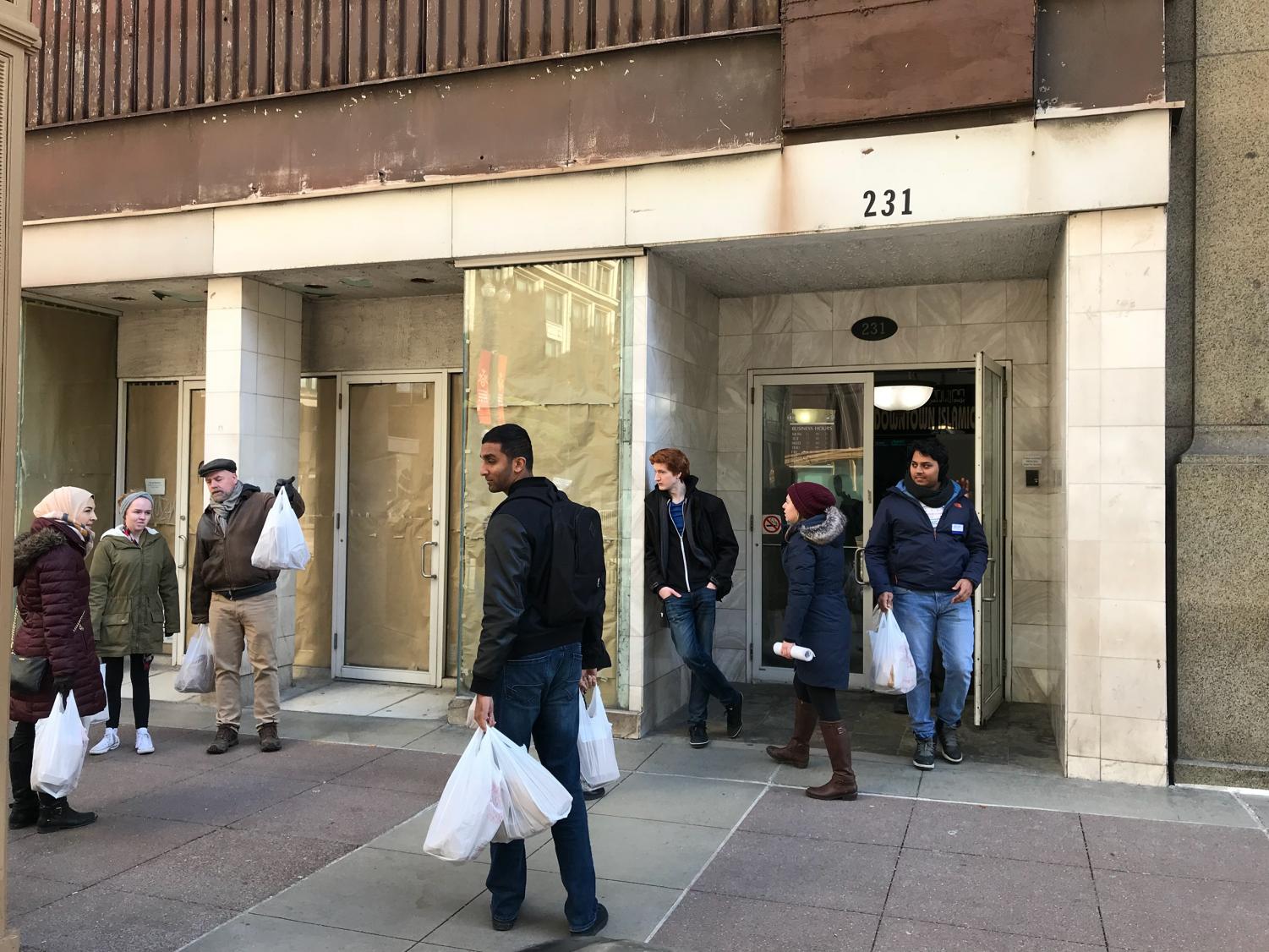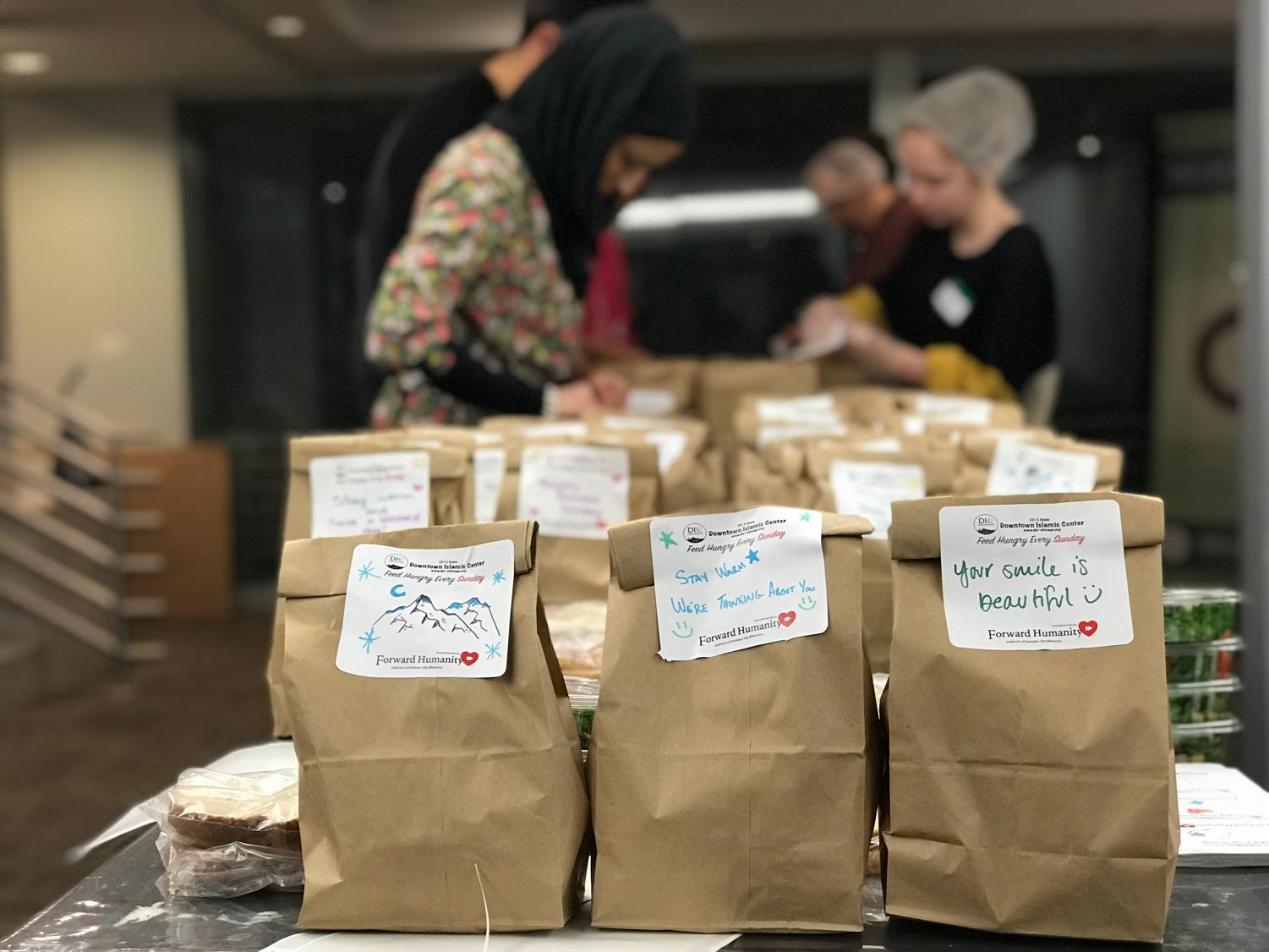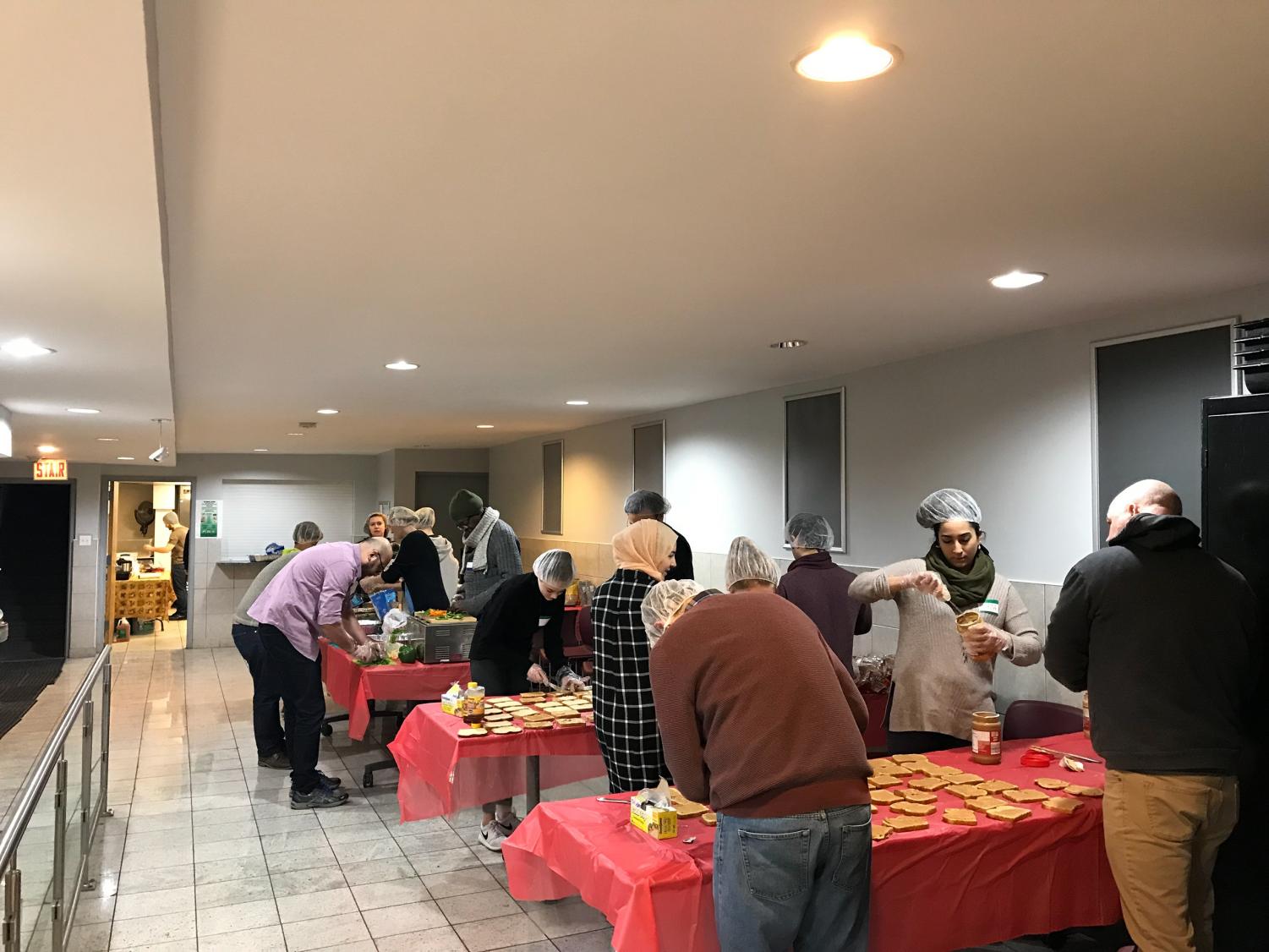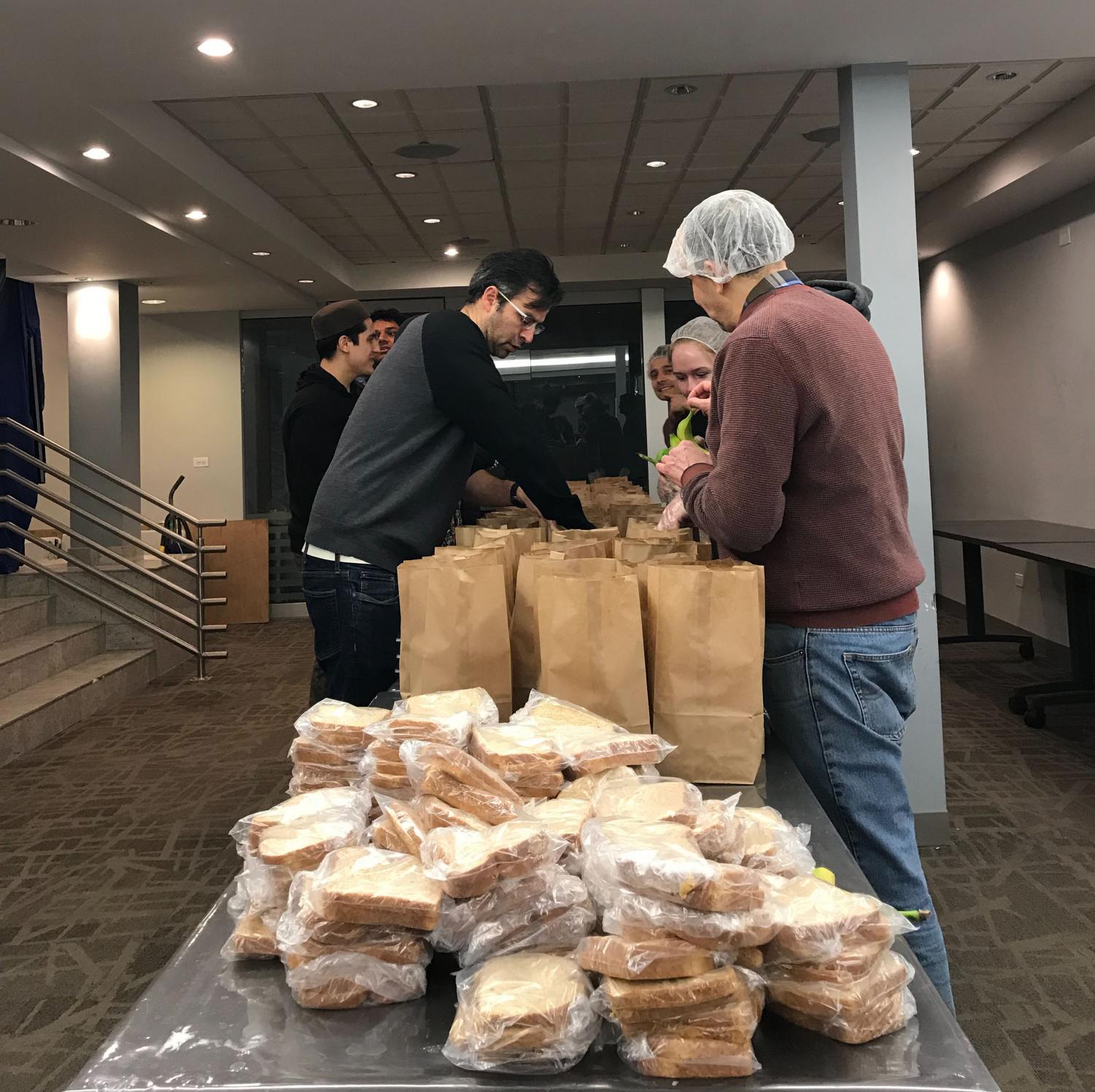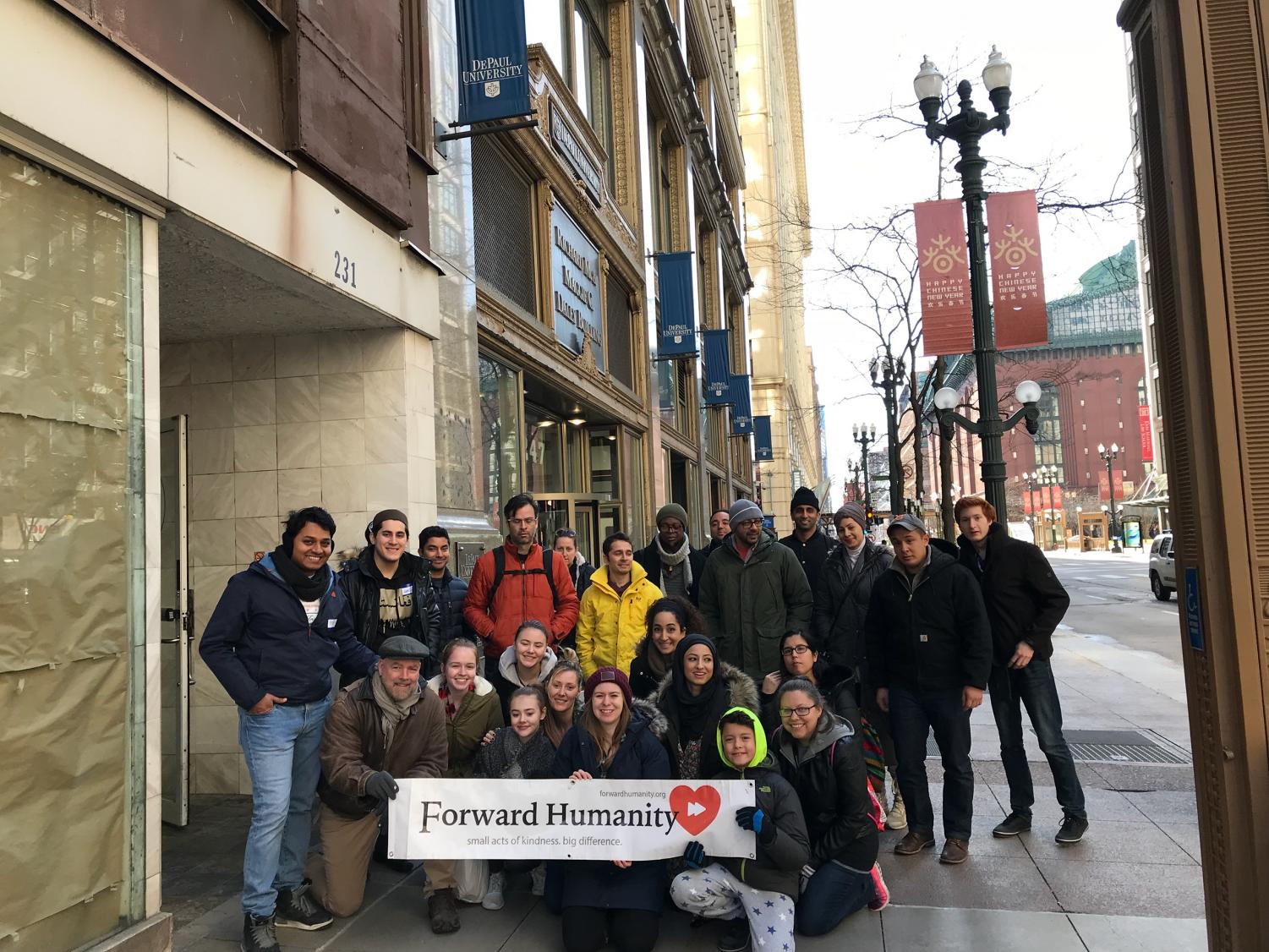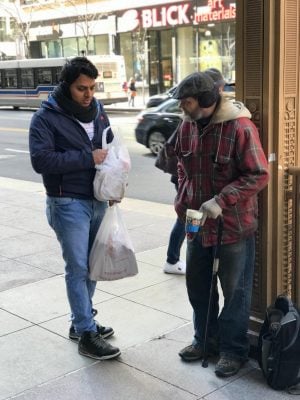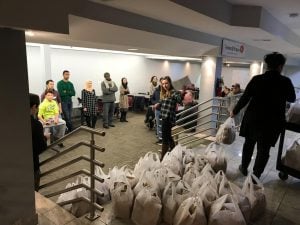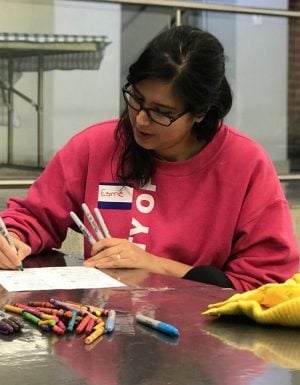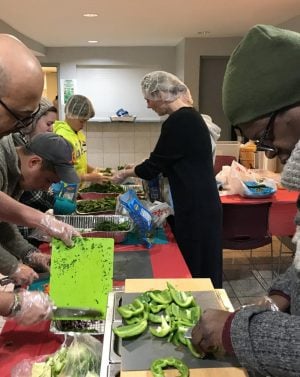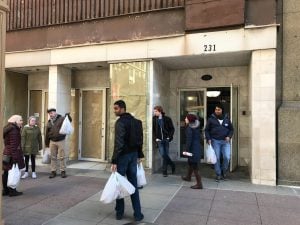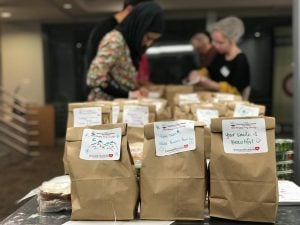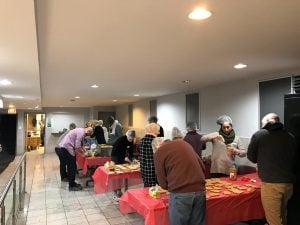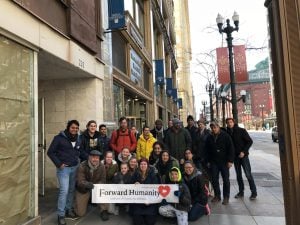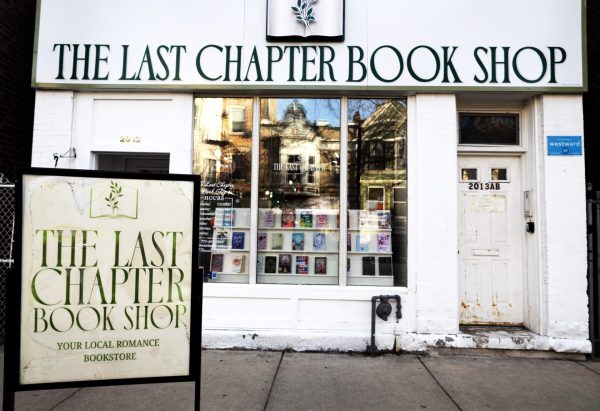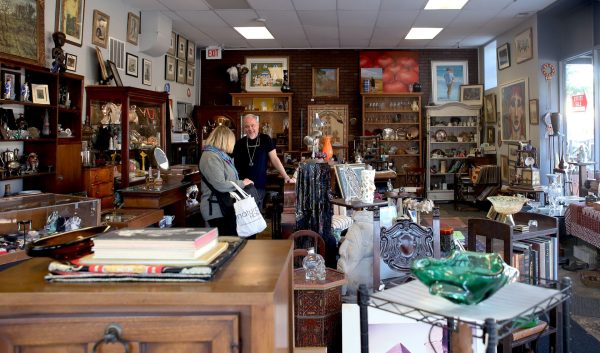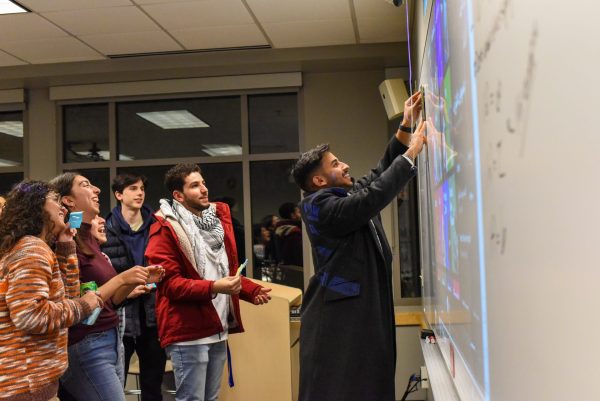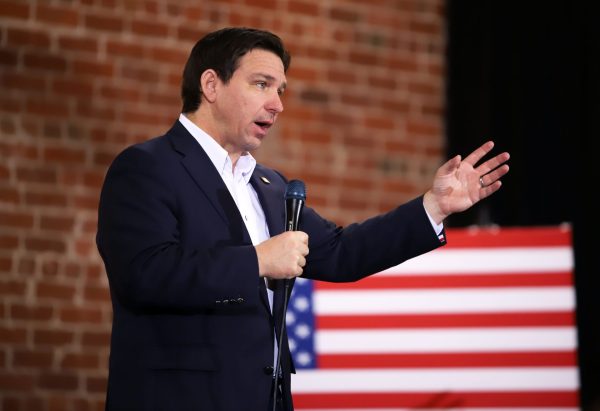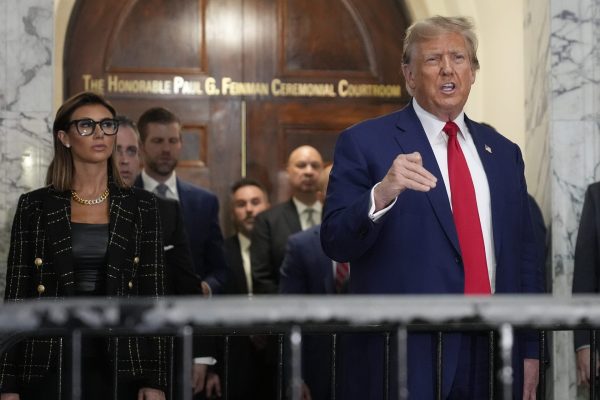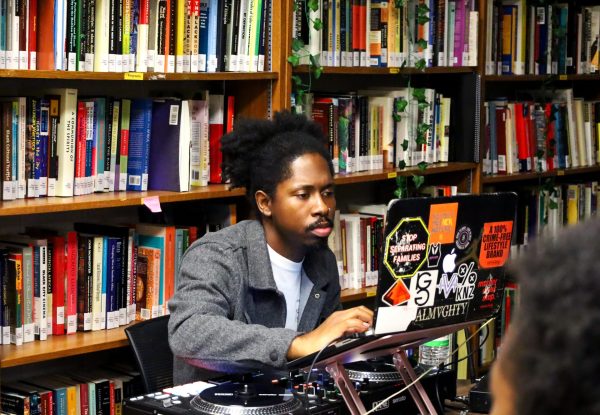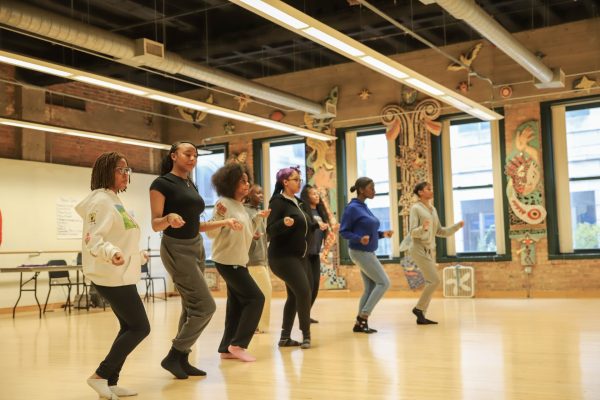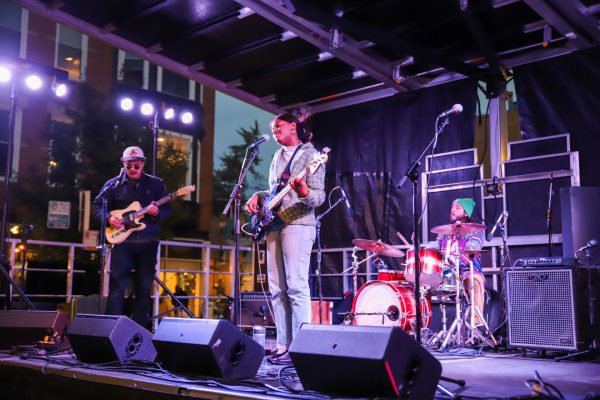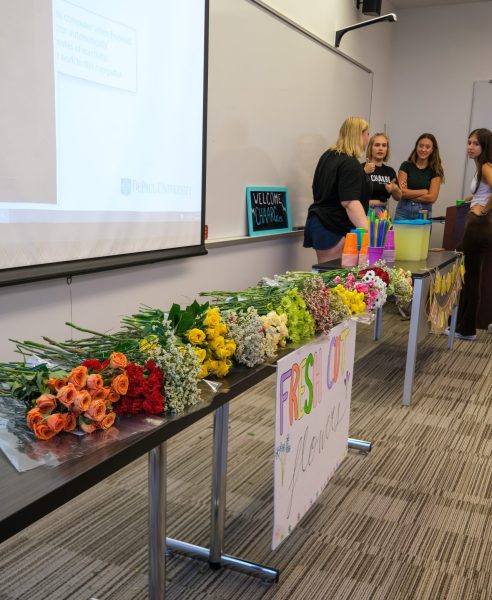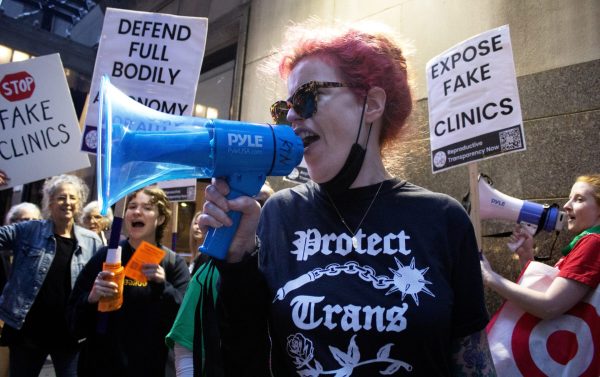Feeding the homeless
The Islamic center is located right next to DePaul University’s Loop campus and a number of DePaul members participate regularly. By feeding the hungry, these students not only fulfill the mission set forth by St. Vincent DePaul, but they also seek to bridge a gap between faiths and between the university and its neighbors.
The project adopted the motto, “Fighting Hunger, Spreading Peace, and Sharing Blessing,” to strengthen social cohesion by encouraging volunteers to reach out to disadvantaged groups and also to achieve poverty reduction.
“Feeding a hungry stomach is the noblest thing you can do for a human,” said Asif Shaikh, a DePaul grad student in the College of Computing and Digital Media. He has been volunteering at DIC since June 2017. “I feel humbled and blessed to have this opportunity. It gives me immense contentment and I got to meet new people from different faiths and learn about their culture”.
An assistant director of Religious Diversity and Loop Ministry, Abdul-Malik Ryan, explained that United Muslims Moving Ahead (UMMA) has several social and service activities as a part of the Vincentian Community Service in DePaul. “These activities seek to empower students to promote the inherent human dignity of all people, especially marginalized communities, by educating students to cultivate relationships rooted in service, faith, and justice, as it describes itself,” Ryan said.
In the basement of the Downtown Islamic Center (DIC), Esmeralda Lopez, who is a volunteer with the project Feed Hungry, prepares stickers that will hang on homeless people’s bags of food for the purpose of spreading the spirit of hope, such as “Your smile is beautiful.”
“The best deeds are those done regularly, even if they are few,” Ryan said. In addition to Forward Humanity, about 15-25 DePaul students also volunteer twice a week with Bridging the Gap and Inner City Muslim Action Network on the South side of Chicago.
Shaikh highlighted some challenges that face the project, such as consistent leaders to educate new volunteers or running out of inventory. While Ryan thought that challenges of social activities are “a budget constraint, balancing volunteer and school commitments, coordinating different efforts at DePaul and others, and consistency to keep projects going,” He continued, “By coordination, we can figure out that we have a capacity for multiple activities at the same time.”
To combine and coordinate the project’s efforts with DePaul projects in the name of one goal, Ryan demonstrated that DePaul supports many humanitarian activities and has a good relationship with the Muslim community, though there are some challenges in terms of budget. The university tries to commit to making community service priority as a part of its identity and social activities, and recognizes its significance and continuing to facilitate it.” Shaikh also confirmed that DePaul works on various social activities, but it should support more interfaith projects and collaborate with others outside the university to bridge the gap with the Muslim community, and other because this will help students to connect with working professionals.


